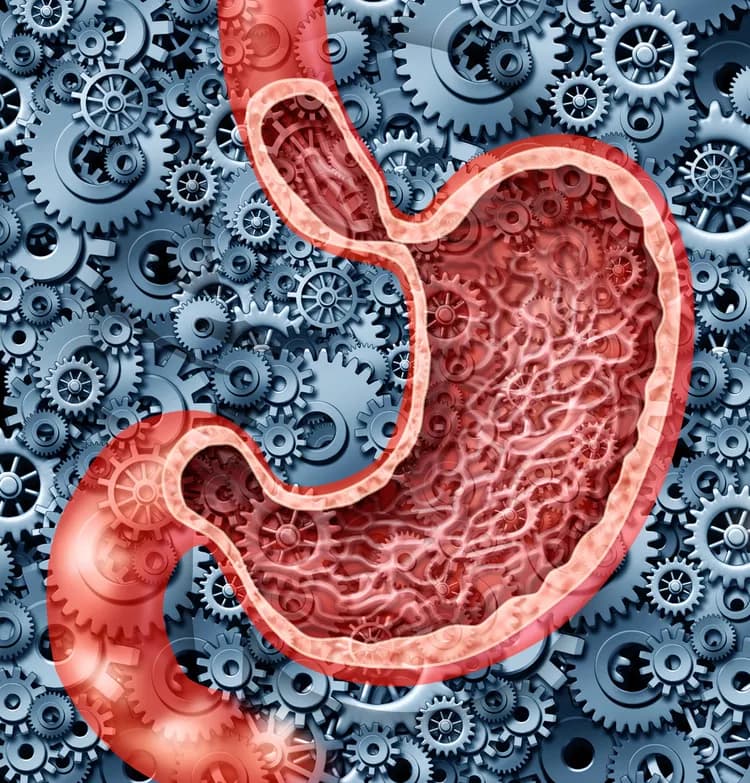
Effects Of Gut Flora Revisited
An unhealthy diet changes the composition of the gut flora and it is generally assumed that this maladaptation called "dysbiosis" triggers disease. A study by Matteo Serino and his colleagues at the Université Paul Sabatier in Toulouse, France, now challenges this view. Using mice as a model organism, the researchers show that dysbiosis may have beneficial effects on liver metabolism and may protect against metabolic disease. The study is published today in Molecular Systems Biology.
The intestine is covered with a plethora of microorganisms, collectively termed gut microbiota, that are thought to play an important role in regulating the metabolism and shaping the immune system. Many studies have shown that dysbiotic bacteria can cause disease. However, these studies generally follow a similar protocol that may impact on the outcome: They transfer dysbiotic bacteria to axenic mice that do not have any microbiota. For example, axenic mice that receive microbiota from the gut of obese mice would increase their total body fat, indicating that microbiota play a causative role in the development of obesity.
Serino and his colleagues now took a different approach to addressing the role of microbiota. The researchers reasoned that axenic mice are ill-equipped to deal with dysbiotic microbiota. Their gut barrier is impaired, favoring an uncontrolled spread of bacteria throughout the body. In addition, their immune system is not well developed. Thus, instead of using axenic mice as recipients of dysbiotic microbiota, the team used normal, healthy mice, which have not been treated with antibiotics before. In contrast to previous research, the team found that a dysbiosis is not necessarily harmful. In fact, it may even lead to metabolic adaptions that protect the body against disease.
High fat diet increases the production of glucose by the liver and can eventually lead to metabolic disease. However, when Serino and his colleagues transplanted dysbiotic microbiota from mice on high-fat diet to healthy mice, they found that the production of glucose in the liver was reduced rather than increased. Therefore, dysbiotic microbiota counter the metabolic effect of high-fat diet and may thus protect the host from its consequences. Similar effects were also observed when the researchers used microbiota from genetically obese mice.
In another set of experiments, the researchers transplanted dysbiotic microbiota from obese mice to healthy mice and then put these mice on a high-fat diet. Normally, a high-fat diet would lead to weight gain. However, the body mass of mice that had received dysbiotic microbiota did not change, and their adipose tissue showed smaller fat cells, consistent with increased plasma free-fatty acids.
In conclusion, dysbiosis after high-fat diet may not all be detrimental. As long as the gut barrier is intact and the immune system is functional, dysbiosis may even protect the body from metabolic effects of unhealthy diets. "Our observation may encourage a new debate on the role of gut microbiota dysbiosis in the induction of metabolic diseases," said Serino.
Materials provided by EMBO - excellence in life sciences. Note: Content may be edited for style and length.
Disclaimer: DoveMed is not responsible for the accuracy of the adapted version of news releases posted to DoveMed by contributing universities and institutions.
Primary Resource:
Nicolas, S., Blasco‐Baque, V., Fournel, A., Gilleron, J., Klopp, P., Waget, A., ... & Tercé, F. (2017). Transfer of dysbiotic gut microbiota has beneficial effects on host liver metabolism. Molecular Systems Biology, 13(3), 921. DOI: 10.15252/msb.20167356
Related Articles
Test Your Knowledge
Asked by users
Related Centers
Related Specialties
Related Physicians
Related Procedures
Related Resources
Join DoveHubs
and connect with fellow professionals

0 Comments
Please log in to post a comment.